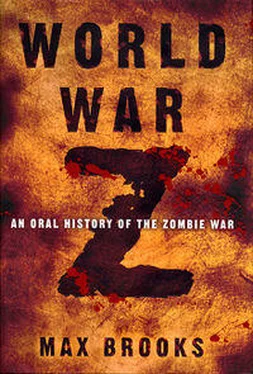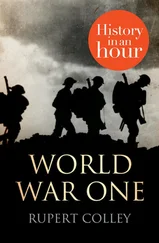[I motioned to the sword at his side. Tatsumi smiles.]
[Sensei Tomonaga Ijiro knows exactly who I am seconds before I enter the room. Apparently I walk, smell, and even breathe like an American. The founder of Japan’s Tatenokai, or “Shield Society,” greets me with both a bow and handshake, then invites me to sit before him like a student. Kondo Tatsumi, Tomonaga’s second in command, serves us tea then sits beside the old master.
Tomonaga begins our interview with an apology lor any discomfort I might feel about his appearance. The sensei’s lifeless eyes have not functioned since his adolescence.]
I am “hibakusha.” I lost my sight at 11:02 A.M., August 9, 1945, by your calendar. I was standing on Mount Kompira, manning the air-raid warning station with several other boys from my class. It was overcast that day, so I heard, rather than saw, the B-29 passing close overhead. It was only a single B’San, probably a reconnaissance flight, and not even worth reporting. I almost laughed when my classmates jumped into our slit trench. I kept my eyes fixed above the Urakami Valley, hoping to maybe catch a glimpse of the American bomber. Instead, all I saw was the flash, the last thing I would ever see.
In Japan, hibakusha, “survivors of the bomb,” occupied a unique rung in our nation’s social ladder. We were treated with sympathy and sorrow: victims and heroes and symbols for every political agenda. And yet, as human beings, we were little more than social outcasts. No family would allow their child to marry us. Hibakusha were unclean, blood in Japans otherwise pristine genetic onsen. I felt this shame on a deeply personal level. Not only was I hibakusha, but my blindness also made me a burden.
Out the sanatorium’s windows I could hear the sounds of our nation struggling to rebuild itself. And what was my contribution to this effort, nothing!
So many times I tried inquiring about some manner of employment, some work no matter how small or demeaning. No one would have me. I was still hibakusha, and I learned so many polite ways to be rejected. My brother begged me to come and stay with him, insisting that he and his wife would take care of me and even find some “useful” task around the house. For me that was even worse than the sanatorium. He had just gotten back from the army and they were trying to have another baby. To impose on them at such a time was unthinkable. Of course, I considered ending my own life. I even attempted it on many occasions. Something prevented me, staying my hand each time I groped for the pills or broken glass. I reasoned it was weakness, what else could it be? A hibakusha, a parasite, and now a dishonorable coward. There was no end to my shame in those days. As the emperor had said in his surrender speech to our people, I was truly “enduring the unendurable.”
I left the sanatorium without informing my brother. I didn’t know where I was heading, only that I had to get as far from my life, my memories, myself, as possible. I traveled, begged mostly … I had no more honor to lose… until I settled in Sapporo on the island of Hokkaido. This cold, northern wilderness has always been Japan’s least populated prefecture, and with the loss of Sakhalin and the Kuriles, it became, as the Western saying goes, “the end of the line.”
In Sapporo, I met an Ainu gardener, Ota Hideki. The Ainu are Japan’s oldest indigenous group, and even lower on our social ladder than the Koreans.
Maybe that is why he took pity on me, another pariah cast out by the tribe of Yamato. Maybe it was because he had no one to pass his skills along to. His own son had never returned from Manchuria. Ota-san worked at the Akakaze, a former luxury hotel that now served as a repatriation center for Japanese settlers from China. At first the administration complained that they had no more funds to hire another gardener. Ota-san paid me out of his own pocket. He was my teacher and only friend, and when he died, I considered following him. But, coward that I was. I could not bring myself to do it. Instead I simply continued to exist, working silently in the earth as the Akakaze went from a repatriation center to a luxury hotel and Japan went from conquered rubble to economic superpower.
I was still working at the Akakaze when I heard of the first domestic outbreak. I was trimming the Western-style hedges near the restaurant, when I overheard several of the guests discussing the Nagumo murders. According to their conversation, a man had slain his wife, then set upon the corpse like some kind of wild dog. This was the first time I had heard the term “African rabies.” I tried to ignore it and get on with my work, but the next day there were more conversations, more hushed voices across the lawn and beside the pool. Nagumo was old news compared to the much more serious outbreak at Sumitomo Hospital in Osaka. And the next day there was Nagoya, then Sendai, then Kyoto. I tried to push their conversations from my mind. I had come to Hokkaido to escape from the world, to live out my days in shame and ignominy.
The voice that finally convinced me of danger came from the hotel’s manager, a stiff, no-nonsense salaryman with a very formal manner of speech. After the outbreak in Hirosaki, he held a staff meeting to try to debunk, once and for all, these wild rumors about dead bodies coming back to life. I had only his voice to rely on, and you can tell everything about a person by what happens when he opens his mouth. Mister Sugawara was pronouncing his words far too carefully, particularly his hard, sharp consonants. He was overcompensating for a previously conquered speech impediment, a condition that only threatened to rise in the presence of great anxiety. I had listened to this verbal defense mechanism before from the seemingly unflappable Sugawara-san, first during the ’95 quake, and again in ’98 when North Korea had sent a long-range, nuclear-capable “test missile” streaking over our homeland. Sugawara-san’s articulation had been almost imperceptible then, now it shrieked louder than the air-raid sirens of my youth.
And so, for the second time in my life, I fled. I considered warning my brother, but so much time had passed, I had no idea how to reach him or even it he was still alive. That was the last, and probably the greatest of all my dishonorable acts, the heaviest weight I will carry to my grave.
Why did you run? Were you afraid for your life?
Of course not! If anything I welcomed it! To die, to finally be put out of my lifelong misery was almost too good to be true… What I feared was, once again, becoming a burden to those around me. To slow someone down, to take up valuable space, to put other lives in danger if they tried to save an old blind man who wasn’t worth saving… and what if those rumors about the dead returning to life were true? What if I were to find myself infected and awake from death to threaten the lives of my fellow countrymen? No, that was not going to be the fate of this disgraced hibakusha. If I was to meet my death, it should be in the same manner as I had lived my life. Forgotten, isolated, and alone.
I left at night and began hitchhiking south down Hokkaido’s DOO Expressway. All I had with me was a water bottle, a change of clothes, and my ikupasuy,” a long, flat shovel similar to a Shaolin spade but which also served for many years as my walking stick. There was still a sizable amount of road traffic in those days-our oil from Indonesia and the Gulf was still flowing-and many truck drivers and private motorists were kind enough to give me a “ride.” With each and every one, our conversation turned to the crisis: “Did you hear that the Self Defense Force has been mobilized?”; “The government’s going to have to declare a state of emergency”; “Did you hear there was an outbreak last night, right here in Sapporo’” No one was sure what the next day would bring, how far the calamity would spread, or who would be its next victim, and yet, no matter whom I spoke to or how terrified they sounded, each conversation would inevitably end with “But I’m sure the authorities will tell us what to do.” One truck driver said, “Any day now, you’ll see, if you just wait patiently and don’t make a public fuss.” That was the last human voice I heard, the day before I left civilization and trekked into the Hiddaka Mountains.
Читать дальше












